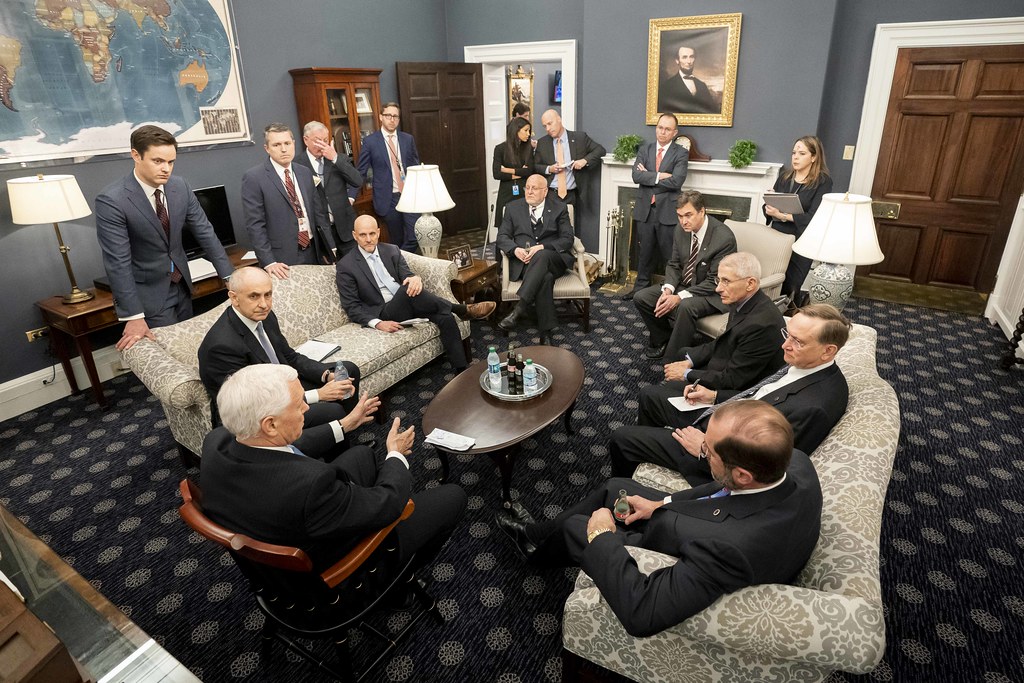It’s a challenge to not be inundated by the force of the global panic we’re facing around the COVID-19 outbreak, which is now officially recognized as a pandemic. Like many, my new reality includes working from home with young kids no longer in school, financial uncertainty and real fears about the health of my family and friends.
The fallout of the virus on our society is apparent in very real ways, and not just by the people who’ve been exposed to it. Markets are volatile. Elections are in question. Schools and offices are closing, leaving students and employees to learn or work remotely. Conferences are going online, festivals getting nixed. Sports leagues are suspending their entire season, and weddings and birthday parties are getting postponed or canceled entirely.
All these events will have a long-lasting impact and deserve the attention they’ve been getting. But there’s something important about the coronavirus that few people are talking about: Women are set to be disproportionately affected by the pandemic.
Women already do 2.6 times the unpaid care for families and work around the house that men do. Given many are already handling the bulk of planning and caretaking in families, the new pressures brought on by kids at home and reduced wages is creating scenarios previously unimaginable for many.
Also, let’s consider the wage gap. Our lowest-wage workers are Latina women, who are paid 47 percent less than men on average. These lower-wage workers very often have jobs that focus on face-to-face contact, so as we enact “social distancing” policies, they are likely to be among the hardest hit by the virtual shut-down of our society as usual.
Paid leave is another serious concern as many businesses reduce hours or close their doors altogether to help prevent the spread of the virus. Take for instance black mothers. More than 80 percent of black mothers are their family’s breadwinner, yet 70 percent don’t have access to any type of paid leave. With women overall making up over 40% of the gig economy, access to healthcare and leave continues to be a growing issue. Even more, there’s a budding childcare crisis as schools begin to close and women have to choose between their paycheck and staying home with their young ones.
Millions of Americans also rely on professional caregivers to look after their aging parents and children—but as the coronavirus spreads, who’s looking out for these workers? In the U.S. alone, we have 2.3 million home care workers, mostly women of color and immigrants, who are deeply undervalued and not adequately protected under decades-old labor laws.
Why aren’t we hearing solutions around these issues? There aren’t enough women at the top. Despite the fact that women make up more than half the U.S. population, a lack of female inclusion in leadership—and particularly in the response to the coronavirus pandemic—leaves a glaring blind spot in our society’s response that threatens to hurt the women among us who are already most vulnerable.
This is not to say there’s nothing we can do in the face of this pandemic. We don’t have to feel isolated from enacting any social impact. There are ways to help. Social distancing alone decreases the spread of the virus and reduces the impact on the healthcare system. And, already, women are stepping up in their communities by organizing food deliveries for elderly neighbors and figuring out how to support local brick-and-mortar shops even while their doors might be closed.
Even while we’re working from home or self-quarantined, we can band together in the virtual space—and we can do real, meaningful work toward equal representation for women in leadership. In fact, the virtual space has been our primary gathering space at She Should Run, the organization I lead that exists to help all of us take action toward ensuring women seeking leadership roles are supported.
Over 18,000 women are already part of She Should Run’s online community, and it continues to grow as women are more revved up than ever to show up in ways they hadn’t before (the day Senator Elizabeth Warren ended her campaign, registrations increased by an incredible 75 percent). In this community, we give women tools like online courses, webinars and articles and space to consider a run for office, and the guidance to tackle the social barriers that discourage women from seeking elected positions. We lift up the stories of women who are leading. At She Should Run, an all-women, remote organization, we couldn’t be more prepared to operate, innovate, and make strides with our growing virtual community.
This support is vital to add more female leaders to the political pipeline, who can magnify the concerns of women at large. After all, how could we hope to address the full impact of this pandemic on our society if we exclude women who can bring unique life experience, business experience, and human experience to the table as leaders grapple with the unfolding crisis? We cannot afford to leave half the population out of solution making.
And it isn’t a partisan issue; we need women of all backgrounds and all political leanings to have a seat at the table because we know that when women are included, the result is simply better government. Women have been shown to strengthen civility and bipartisanship in politics, something that could prove incredibly useful at a time when finger-pointing seems to overshadow the official response. Further, studies show that women in government invest more in health and education, resulting in lower mortality rates and a healthier population.
We absolutely must fight for leadership that truly understands what all members of our society are going through, both in times of panic and in calmer times. The coming weeks and months will be tough, as will the ongoing fight to have a seat at the leadership table. But women know how to get it done—we always have. We can get through this together. Will you join us?



